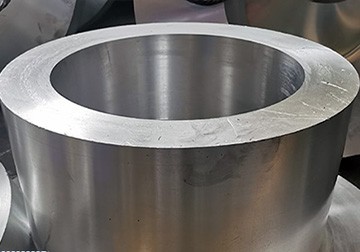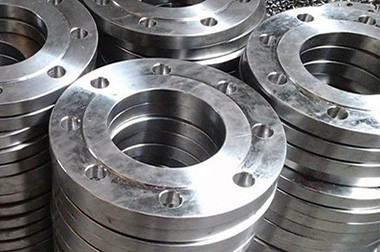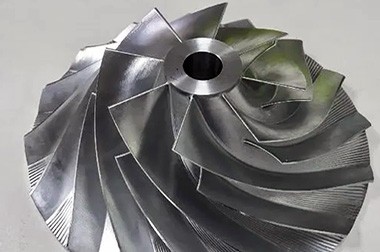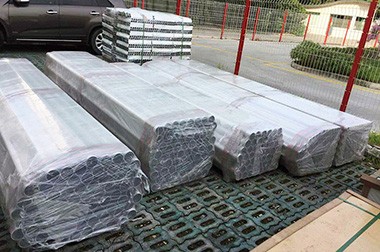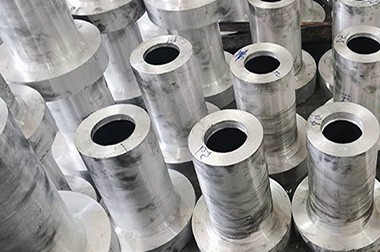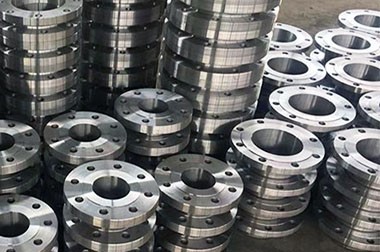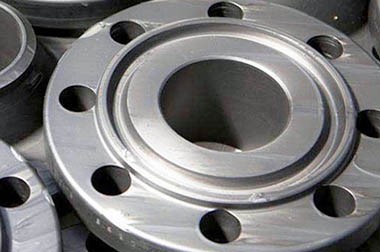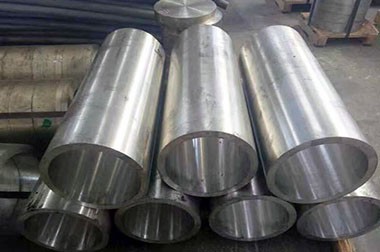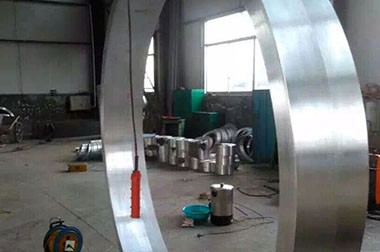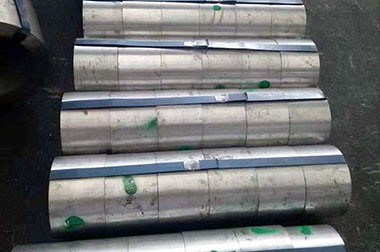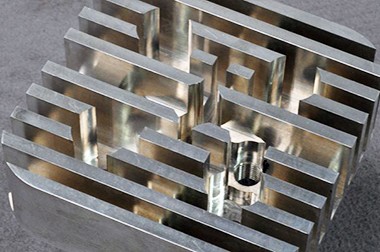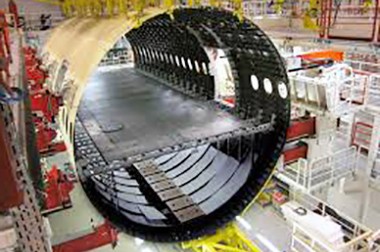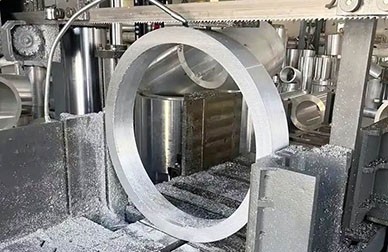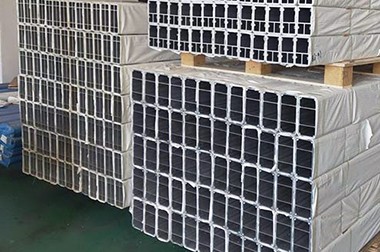7175 Aerospace Aluminum Forgings
7175 aerospace aluminum forgings are a type of high-strength aluminum alloy material primarily used in the aerospace field. The 7175 alloy belongs to the aluminum-zinc-magnesium alloy series, featuring excellent mechanical properties and corrosion resistance, making it suitable for manufacturing structural components and parts of aircraft.
The 7175 alloy is typically heat-treated (such as in the T6 condition) to enhance its strength and hardness. During the forging process, the material is heated to a certain temperature and then deformed using mechanical force to achieve the desired shape and properties.
When using 7175 aluminum alloy, it is important to consider its strength degradation in high-temperature environments and its corrosion potential in certain chemical environments. Therefore, careful material selection and treatment should be conducted during design and application.
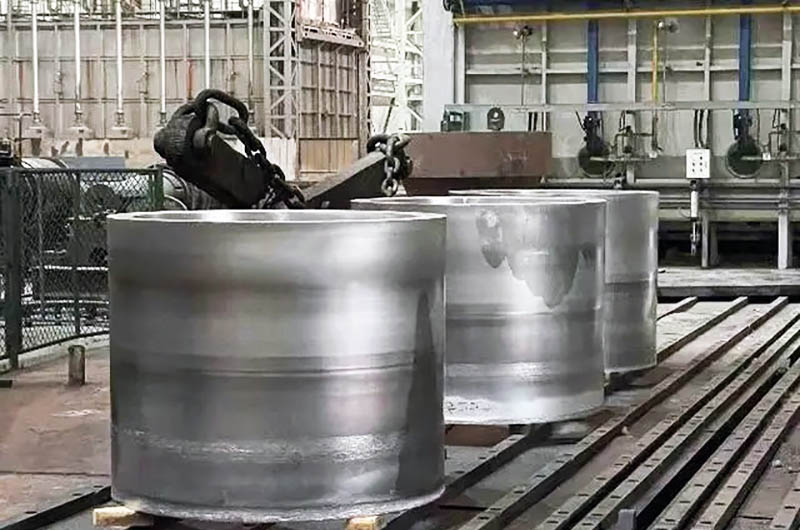
Characteristics of 7175 Aerospace Aluminum Forgings
- High Strength: The 7175 alloy exhibits extremely high tensile strength after heat treatment, making it suitable for high-load applications.
- Toughness: It has a good balance between strength and toughness, though its toughness may be lower compared to other aluminum alloys.
- Good Corrosion Resistance: Although aluminum-zinc alloys generally have relatively poor corrosion resistance, suitable surface treatments can enhance their corrosion resistance.
- Machinability: The 7175 alloy demonstrates good machinability during forging and processing, making it suitable for manufacturing complex shapes.
- Lightweight: The low density of aluminum alloys helps reduce the overall weight of the aircraft, improving fuel efficiency.
7175 Aviation Aluminum Forging Specifications
Common Forms of 7175 Aviation Aluminum Forgings
- Forging Blocks: Used for subsequent machining, sizes can be customized according to requirements.
- Forged Plates: Used to manufacture structural components such as fuselage and wings, with thickness typically ranging from 5mm to 50mm.
- Forged Tubes: Used for making frameworks and support structures, with diameter and wall thickness selectable based on design requirements.
Common Sizes of 7175 Aviation Aluminum Forgings
Forging Blocks: Common sizes include 1000mm x 500mm x 100mm, or customized according to specific design needs.
Forged Plates:
- Thickness: 5mm, 10mm, 20mm, 25mm, 50mm
- Sizes: Available in various specifications such as 2000mm x 1000mm, 1500mm x 3000mm, etc.
Forged Tubes:
- Outer Diameter: Common range is 20mm to 150mm
- Wall Thickness: Common range is 2mm to 10mm
Other Characteristics of 7175 Aviation Aluminum Forgings
- Condition: 7175 aluminum alloy is typically supplied in T6 condition, having been heat-treated to increase strength.
- Surface Treatment: May have anodizing or coating treatments to enhance corrosion resistance.
Specific specifications may vary depending on the manufacturer and application requirements, so it is important to confirm based on specific design and performance needs when making a selection.
Chemical composition of 7175 aerospace aluminum forgings
| Element | Value (%) |
| Si | 0.12 |
| Fe | 0.15 |
| Cu | 1.6-2.4 |
| Mn | 0.10 |
| Mg | 2.1-2.9 |
| Cr | 0.18-0.28 |
| Zn | 5.1-6.1 |
| Ti | 0.06 |
| Al | Remainder |
7175 aerospace aluminum forging physical or mechanical properties
| Performance | Value |
| Density | 2.81 g/cm3 |
| Melting point | 463°C |
| Hardness | 120-140 HB |
| Yield Strength | 530-580 MPa |
| Tensile strength | 630-680 MPa |
| Elongation | 7-8% |
| Fracture toughness | 22-30 J/cm2 |
Applications of 7175 Aerospace Aluminum Forgings
1. Aircraft Structural Components
- Fuselage Frame: The application of 7175 aluminum forgings in the fuselage frame is primarily reflected in its ability to withstand various pressures and loads. The forging process enhances the density and strength of the aluminum, allowing the frame to maintain stability under extreme flight conditions, ensuring the safety of passengers and cargo.
- Wing Structure: Wings are critical load-bearing components of an aircraft. The use of 7175 aluminum forgings can significantly reduce weight while increasing lift. The forging process provides better mechanical performance, enabling it to resist aerodynamic pressure and climatic changes.
- Landing Gear Components: Landing gear experiences significant impact forces. The high strength and toughness of 7175 ensure effective stress distribution during landing, and the forged structure avoids common casting defects, enhancing safety and durability.
2. Internal Components
- Seat Frame: The lightweight design of 7175 aluminum forgings is applied in seat frames, making the seats not only safe and reliable but also reducing overall cabin weight, thereby improving fuel efficiency. The strength of the forgings helps maintain their shape during prolonged use, ensuring comfort.
- Cabin Support Structures: Inside the cabin, 7175 aluminum forgings provide robust support. The forging process enhances the uniformity and fatigue resistance of the material, ensuring the stability of cabin equipment during flight.
3. Other Applications
- Aerospace Components: 7175 aluminum forgings are widely used in engine mounts and fuel tanks due to their durability and reliability, allowing them to withstand high temperatures and pressures. The forging process ensures their performance under extreme conditions.
- Composite Material Frames: In composite structures, the strength and lightweight characteristics of 7175 aluminum forgings provide necessary support. The uniform structure of the forgings prevents stress concentrations when combined with other materials, enhancing overall performance.
Why Choose Forged 7175 Aluminum Alloy?
- 1. Higher Strength: The forging process refines the metal grains through plastic deformation, significantly increasing the material's tensile and yield strength.
- 2. Excellent Toughness: Forged parts have better toughness than cast parts, allowing them to better resist impact and fatigue, making them suitable for high-load applications in aerospace.
- 3. Structural Integrity: During the forging process, porosity and impurities are effectively eliminated, ensuring material uniformity and consistency, enhancing structural reliability.
- 4. Durability: Forged parts perform better under extreme conditions, capable of withstanding high temperatures and pressures, making them suitable for harsh environments.
- 5. Machining Flexibility: Forging can accommodate various shapes and sizes, providing greater flexibility in design.
Haomei Hot Selling Aluminum Forging Products
Haomei Aluminum offers alloys including 2014, 2024, 2124, 2219, 2618, 2619, 3003, 5083, 6061, 7049, 7050, 7075, 7079, 7149, 7150, and 7175 temper alloys, available upon request, compliant with all AMS, ASTM, Boeing commercial, and Boeing military specifications.
| TYPE | SPECIFICATIONS |
| 2014 | AMS4133, 4134, 4314, AMS-A-22771 |
| 2024 | AMS-QQ-A-367 |
| 2219 | AMS4143, 4144, AMS-QQ-A-367, AMS-A-22771 |
| 2618 | AMS4132, AMS-QQ-A-367, AMS-A-22771 |
| 6061 | AMS4127, 4146, AMS-QQ-A-367, AMS-A-22771 |
| 7049 | AMS4111, AMS-QQ-A-367, AMS-A-22771 |
| 7050 | AMS4107, 4108, AMS-A-22771 |
| 7075 | AMS4126, 4131, 4141, 4147, AMS-QQ-A-367 |
| 7079 | AMS-QQ-A-367 |
| 7150 | AMS-A-22771 |
| 7175 | AMS4148, 4149, 4179, AMS-A-22771 |

